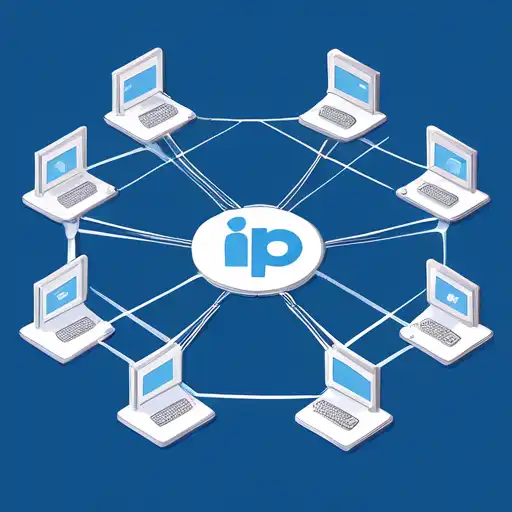Introduction to IP Addresses
In the digital world, an IP (Internet Protocol) address is akin to a home address for your computer or device on a network. It's a unique identifier that allows devices to communicate with each other over the internet or local networks. Understanding IP addresses is fundamental for anyone looking to grasp the basics of networking.
What is an IP Address?
An IP address is a numerical label assigned to each device connected to a computer network that uses the Internet Protocol for communication. There are two versions of IP addresses in use today: IPv4 and IPv6. IPv4 addresses are 32-bit numbers, typically displayed in decimal format as four octets separated by periods (e.g., 192.168.1.1). IPv6, on the other hand, uses 128-bit addresses, allowing for a vastly larger number of unique addresses.
Types of IP Addresses
There are several types of IP addresses, each serving different purposes in networking:
- Public IP Address: Assigned by your Internet Service Provider (ISP), this address is used to communicate outside your local network.
- Private IP Address: Used within a local network (LAN), allowing devices to communicate with each other without needing a unique public IP.
- Static IP Address: A permanent address assigned to a device that doesn't change over time.
- Dynamic IP Address: Temporarily assigned to a device by a DHCP server and can change over time.
How IP Addresses Work
When you type a website's URL into your browser, your device uses DNS (Domain Name System) to translate the domain name into an IP address. This IP address is then used to route your request through the internet to the server hosting the website. The server responds by sending the requested data back to your device's IP address, allowing you to view the website.
Importance of IP Addresses in Networking
IP addresses are crucial for the functioning of the internet and local networks. They enable devices to locate and communicate with each other, ensuring data is sent to the correct destination. Without IP addresses, the internet as we know it would not exist.
Securing Your IP Address
While IP addresses are essential for communication, they can also be exploited by malicious actors. It's important to secure your network by using firewalls, VPNs, and other security measures to protect your IP address from unauthorized access.
Conclusion
Understanding IP addresses is a cornerstone of networking knowledge. Whether you're setting up a home network or pursuing a career in IT, grasping the basics of IP addresses will serve as a solid foundation for further learning. For more insights into networking, explore our Networking Basics section.
